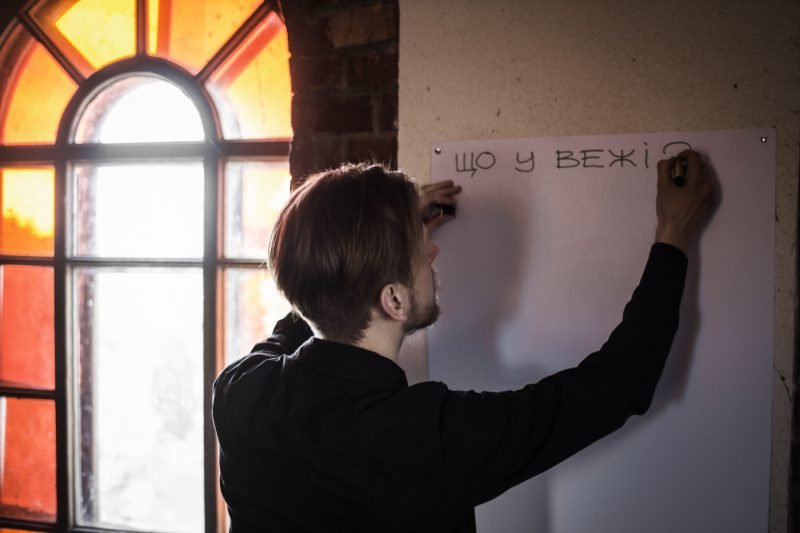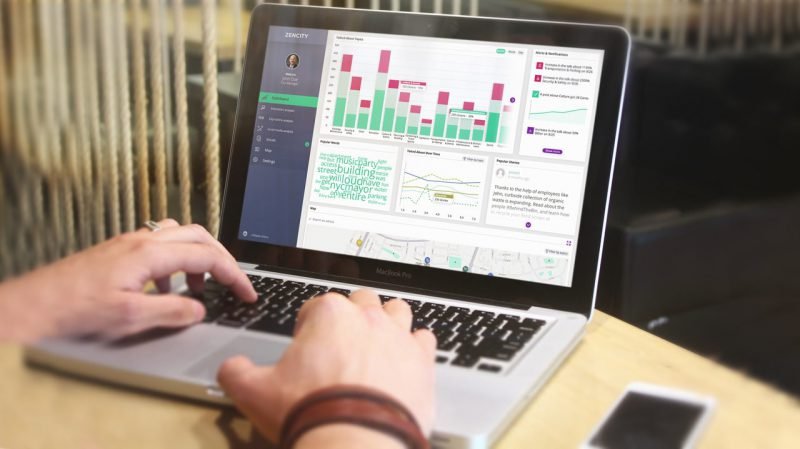How a Digital City Currency Strengthens Community
Ori Succary is the VP of Design at Colu, an Israeli startup that issues local currencies for cities and encourages people to spend locally. In this piece, Ori explains how the app helps cities achieve economic sustainability and shares his vision on the role of design in shaping the future of places we live in.
You are a designer, working on a digital wallet app for cities. What brought you to be interested in this subject?
“I’m a designer, even though I’ve never actually studied design. I got kicked out of school when I was 15 and ended up in the democratic school — the kind of school where kids are in charge. I was always very interested in the subjects that weren’t taught in traditional schools — culture, philosophy, psychology and so on. At my new school, nobody taught them either — but the teachers would always point you in the right direction and encourage you to pursue it: so at 16, I was already teaching cinema to the younger children myself. These fourth-graders would watch crazy movies by Kubrick or Tarkovsky and have truly incredible and deep discussions – it was amazing! But the most important lesson I learned there was that if you’re curious, open and ready to take risks, you could do anything.”
“I was always interested in design, so after I finished school I went on to become a graphic designer. And even though I was quite successful in this profession, I felt like there was something missing. In my daily work, I did a lot of flashy, commercial stuff, when personally, I was much more interested in culture and everything that has something to do with people. I was involved in politics and humanitarian aid, and felt like there’s a deep gap between my professional and personal interests, with no overlap of meaning or value between what I do and what I’m passionate about.”
“And then two things happened, both of which still influence me a lot. First, I was invited to teach design. Like I said previously, I’ve never been to university myself, so it was a totally new experience for me. Second, I read the book “A Pattern Language” by architect Christopher Alexander, which gives a very humane and empathetic perspective on design. This book has completely transformed the way I think and helped me realize the element that my graphic design work was missing – a dialog with people. That’s how I encountered the idea of interaction design, that allows you to influence people and see immediate feedback.”

“Later, I became the head of Interaction Design Studies at Bezalel Academy of Arts and Design in Jerusalem, which was an amazing opportunity to share this vision with students. In parallel, I worked with tech companies and startups, and in all my projects I was always thinking about Christopher Alexander’s perspective, trying to make them more ethical and empathetic. When I met Colu, a Tel Aviv-based startup that creates a decentralized payment system for local communities, I was so blown away with their philosophy and focus on people that I realized there and then I wanted to be part of it.”
What is so special about Colu?
“Colu has this beautiful, almost ancient idea of transforming cities through the local currencies. In its current implementation, a local currency can’t be cashed out or exchanged by consumers, so it is spent on local independent businesses in the network – we target local independent businesses and avoid multinational chains. Since it always stays in the community and circulates in the city, people are encouraged to buy more in local shops and from local suppliers, and this has a strong effect on economic sustainability.”

“At the same time, we’re not trying to undermine the national currencies – Colu is a complementary tool that cities can use to solve their problems. For example, right now we’re working in partnership with 100 Resilient Cities (pioneered by the Rockefeller Foundation) to adopt digital currencies in 2 global cities and help them achieve their sustainability and resilience goals. Ultimately, the idea is to allow people in these cities to get at least part of their salaries and pay some of their taxes with local money. This, in turn, lets the municipalities incentivize the residents to make healthier choices, like using public transportation or cycling.”
“What is special about Colu is the courage to change and do things in order to bring more value not only to the stakeholders, but to the entire ecosystem including people, the actual users. In my team, we go out to the street and interview people on a weekly basis – without any questionnaires, we just show them the app and ask what they see. And people actually say incredible, beautiful things! You wouldn’t believe it – everything we know, or think we know about people, turns out to be wrong. We expect them to be focused on their own interests and personal gain; instead, they are very empathetic and caring for each other and for the communal value. And that’s what Colu is all about – reclaiming this value.”

What new urban professions and skills will be essential in the future?
“It’s hard to say, of course, as modern culture changes so fast – but there are some things that will be crucial for the future Urban Experience Designers: The ability to look and listen deeply. To be alert, attentive and empathetic towards the citizens, and playful towards the practice. The ability to make a stand. I believe (or hope) that in the future, no designers will consider themselves mere service providers or stick to the plain aesthetic aspects of the profession, without considering the behavioral implications of their works on society over time. The ability to be poetic, artistic and soulful. This generation’s main technological effort is to automate and templatize everything — including design. But it’s wrong to think we can templatize art — the writing of Franz Kafka, the art of Andy Goldsworthy, or the music of Otis Redding can’t be automated. Culture will need designers and planners that can outgrow this trend.”



